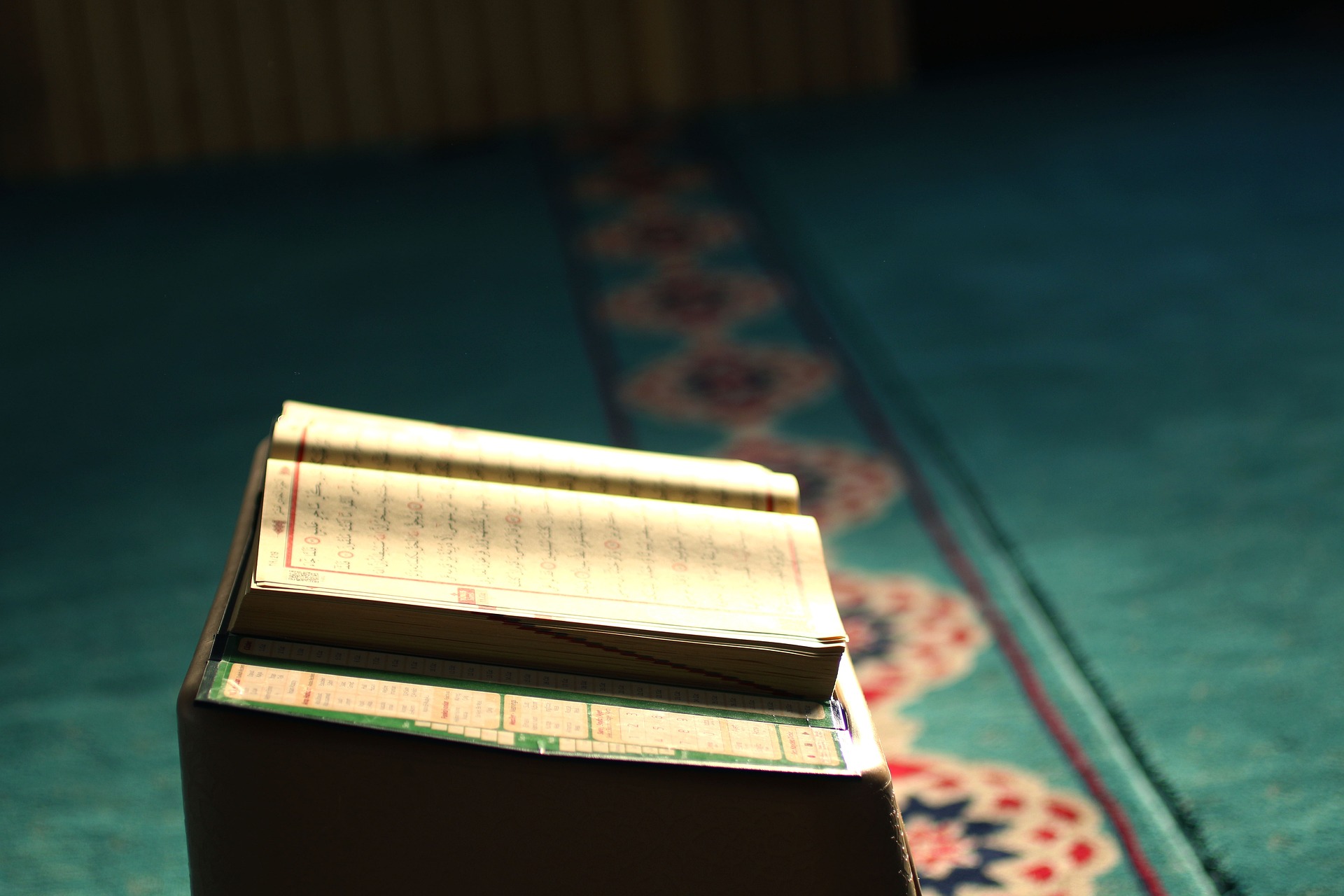Tajweed Science: A Guide to Proper Quranic Recitation
Tajweed is an Arabic term that refers to the rules governing the pronunciation of the Quran. It is an important aspect of Quranic studies, as it ensures that the holy book is recited in a way that is true to its original form. In this post, we will take a closer look at the science of Tajweed and why it is important for those who wish to recite the Quran correctly.
What is the Tajweed science?
The Quran is not just a book of religious teachings, but also a work of art, with its intricate rules of pronunciation and intonation. Tajweed science helps to preserve the beauty of the Quran by ensuring that each word is pronounced in a way that honors its original form. This is essential for those who wish to recite the Quran in a manner that is true to its original meaning and intent.
Tajweed is the science of the proper pronunciation of the Quran, the Islamic holy book. It involves understanding the rules of pronunciation, intonation, and elongation of vowels, as well as the correct use of various Quranic symbols, such as the maddah, the sukoon, and the shaddah. The study of Tajweed is important for Muslims who wish to recite the Quran correctly and with proper reverence. Tajweed aims to preserve the beauty and sanctity of the Quran, as well as to ensure that its pronunciation is true to its original form. By following the rules of Tajweed, individuals can improve their recitation of the Quran and gain a deeper understanding of its teachings.

The proper pronunciation of the Arabic letters
The rules of pronunciation in Tajweed refer to the proper pronunciation of the letters of the Arabic alphabet. The Arabic language has several unique letters and sounds that are different from other languages, and it is important to learn and understand these sounds to recite the Quran correctly.
One of the key rules of pronunciation in Tajweed is the pronunciation of certain letters when they appear at the beginning, middle, or end of a word. For example, the letter “sin” is pronounced differently depending on its position in the word. Another important rule is the pronunciation of certain letters in combination with others, such as when the letters “alif” and “lam” appear together.
It is also important to understand the proper pronunciation of diacritical marks, such as the sukūn (the absence of a vowel sound) and the maddah (the elongation of a vowel sound). Understanding these marks helps to ensure that the pronunciation of a word is accurate and true to its original form.
Additionally, the rules of pronunciation in Tajweed also cover the pronunciation of certain letters that can cause difficulties for non-native speakers of Arabic. For example, the letter “ain” is pronounced differently than other similar letters, such as “alif” and “hamza.”
To ensure that the pronunciation of the Quran is accurate, it is important to study and understand the rules of pronunciation in Tajweed. This can be done through formal studies, such as enrolling in a course or attending lessons, or through self-study, such as practicing recitation with audio resources and seeking feedback from knowledgeable individuals.
The elongation of certain vowels
The elongation of certain vowels is an important aspect of Tajweed science. In the Arabic language, the length of a vowel sound can change the meaning of a word, so it is important to understand the proper length for each vowel to recite the Quran correctly.
The three primary vowels in the Arabic language are the fatḥah, the kasrah, and the ḍammah. The fatḥah is pronounced as a short “a” sound, the kasrah is pronounced as a short “i” sound, and the ḍammah is pronounced as a short “u” sound. In Tajweed, the length of these vowels is important, as a longer vowel sound can change the meaning of a word.
In conclusion, the elongation of certain vowels is an important aspect of Tajweed science that helps to ensure that the pronunciation of the Quran is accurate and true to its original form. Understanding the proper length for each vowel is essential for those who wish to recite the Quran correctly.
The proper intonation of certain words
The proper intonation of certain words is an important aspect of Tajweed science that helps to ensure that the pronunciation of the Quran is accurate and true to its original form. In the Arabic language, the tone and rhythm of a word can change its meaning, so it is important to understand the proper intonation to recite the Quran correctly.
Another important aspect of intonation in Tajweed is the proper pronunciation of certain words that are connected or disconnected. For example, when two words are connected, the first word should be pronounced with a long vowel sound, while the second word should be pronounced with a short vowel sound. On the other hand, when two words are disconnected, both words should be pronounced with short vowel sounds.
Additionally, the rules of intonation in Tajweed also cover the pronunciation of certain letters that can cause difficulties for non-native speakers of Arabic, such as the letter “ain” and the letter “ha.” Understanding the proper intonation of these letters helps to ensure that the pronunciation of the Quran is accurate and true to its original form.
In conclusion, the proper intonation of certain words is an important aspect of Tajweed science that helps to ensure that the pronunciation of the Quran is accurate and true to its original form. Understanding the proper intonation of words is essential for those who wish to recite the Quran correctly.

Tips to improve your Tajweed
Here are some tips that can help individuals improve their Tajweed:
Study the rules of Tajweed: Understanding the rules of pronunciation, intonation, and elongation of vowels is the foundation of improving your Tajweed. Consider enrolling in a course or attending lessons to learn the basics.
Practice regularly: Consistent practice is key to improving your Tajweed. Dedicate time each day to practicing your recitation, focusing on specific areas where you need improvement.
Use audio resources: Listening to experienced Quranic reciters can help you understand the proper pronunciation and intonation of the Quran. Consider using audio resources, such as recordings or online videos, to practice.
Seek feedback: Consider seeking feedback from a knowledgeable individual, such as a teacher or an experienced Quranic reciter, on your Tajweed. This can help you identify areas for improvement and receive guidance on how to improve.
Pay attention to Quranic symbols: Understanding the correct use of Quranic symbols, such as the maddah, the sukoon, and the shaddah, is important for proper pronunciation. Make sure you understand the rules for each symbol and practice using them correctly.
Take advantage of technology: There are several technological resources available that can help individuals improve their Tajweed, such as mobile apps, software programs, and online courses. Consider using these resources to supplement your studies and practice.
Stay motivated: Improving your Tajweed takes time and effort, so it’s important to stay motivated and dedicated. Remember the importance of proper pronunciation in the recitation of the Quran, and keep this in mind as you continue your studies.
Conclusion
Tajweed science is an important aspect of Quranic studies. It helps to preserve the beauty and reverence of the Quran by ensuring that each word is pronounced in a way that honors its original form. Whether you are a beginner or an experienced reciter, studying Tajweed science can deepen your understanding and appreciation of the Quran.
If you are interested in learning more about Tajweed science and Quranic recitation, there are many resources available online. Whether you choose to enroll in a formal course or study on your own, you can gain a deeper understanding of the rules of Tajweed and the proper way to recite the Quran. Al-dirassa can provide you with the best online Quran tutors via Skype or Zoom.
Book your free trial lesson
In addition to the free Arabic courses, we offer you to begin your journey to fluency in Arabic right now for free with a graduated Egyptian teacher.

